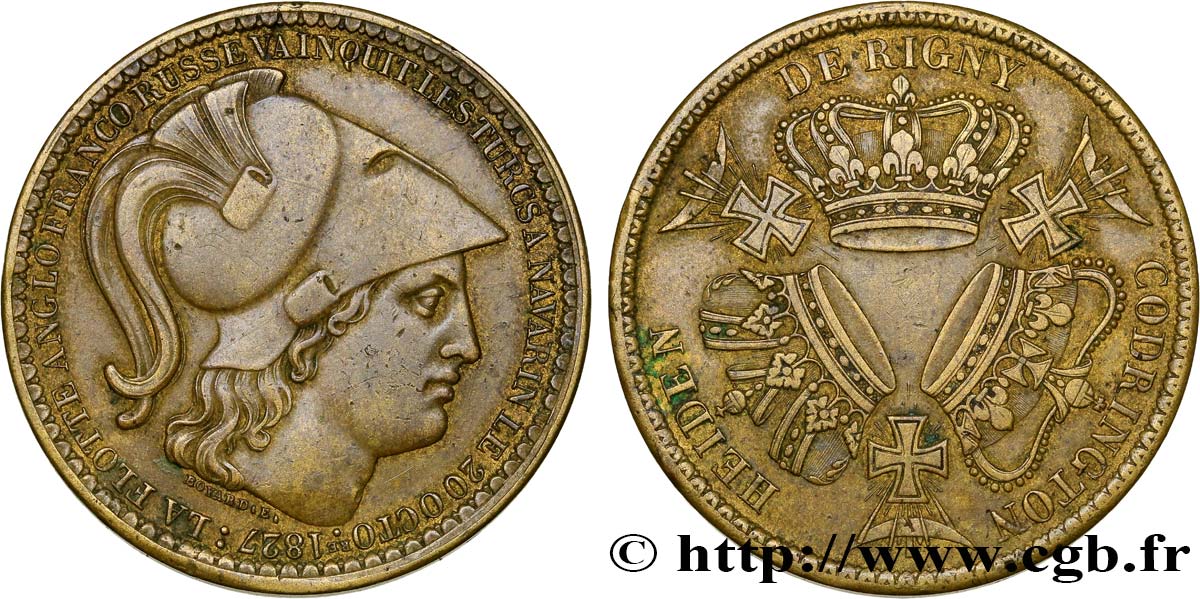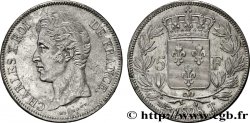fme_371006 - CHARLES X Médaille de la victoire de Navarin
Not available.
Item sold on our e-shop (2015)
Price : 140.00 €
Item sold on our e-shop (2015)
Price : 140.00 €
Type : Médaille de la victoire de Navarin
Date: 1827
Mint name / Town : 75 - Paris
Metal : bronze
Diameter : 34,5 mm
Orientation dies : 12 h.
Engraver BOYARD. E.
Weight : 20,85 g.
Edge : lisse
Coments on the condition:
Intéressante médaille, avec un style inhabituel. patine brune et homogène
Obverse
Obverse legend : LA FLOTTE ANGLO FRANCO RUSSE VAINQUIT LES TURCS A NAVARIN LE 20 OCTO. 1827.
Obverse description : Tête casquée à droite, reprise des statères d’Alexandre.
Reverse
Reverse legend : DE RIGNY - CODRINGTON - HEIDEN.
Reverse description : Trois couronne avec une croix entre chacune.
Commentary
La bataille de Navarin est une bataille navale qui s'est déroulée le 20 octobre 1827, dans la baie de Navarin (ouest du Péloponnèse) entre la flotte ottomane et une flotte franco-russo-britannique dans le cadre de l'intervention de ces trois puissances lors de la guerre d'indépendance grecque. À l'issue des combats, la défaite ottomane est totale.
La bataille de Navarin est considérée comme la dernière grande bataille navale de la marine à voile, avant l'avènement des navires à vapeur, des cuirassés et des obus, mais aussi comme une étape décisive vers l'indépendance de la Grèce et comme l'une des premières « interventions sous un prétexte humanitaire » de l'histoire..
La bataille de Navarin est considérée comme la dernière grande bataille navale de la marine à voile, avant l'avènement des navires à vapeur, des cuirassés et des obus, mais aussi comme une étape décisive vers l'indépendance de la Grèce et comme l'une des premières « interventions sous un prétexte humanitaire » de l'histoire..








 Report a mistake
Report a mistake Print the page
Print the page Share my selection
Share my selection Ask a question
Ask a question Consign / sell
Consign / sell
 Full data
Full data



